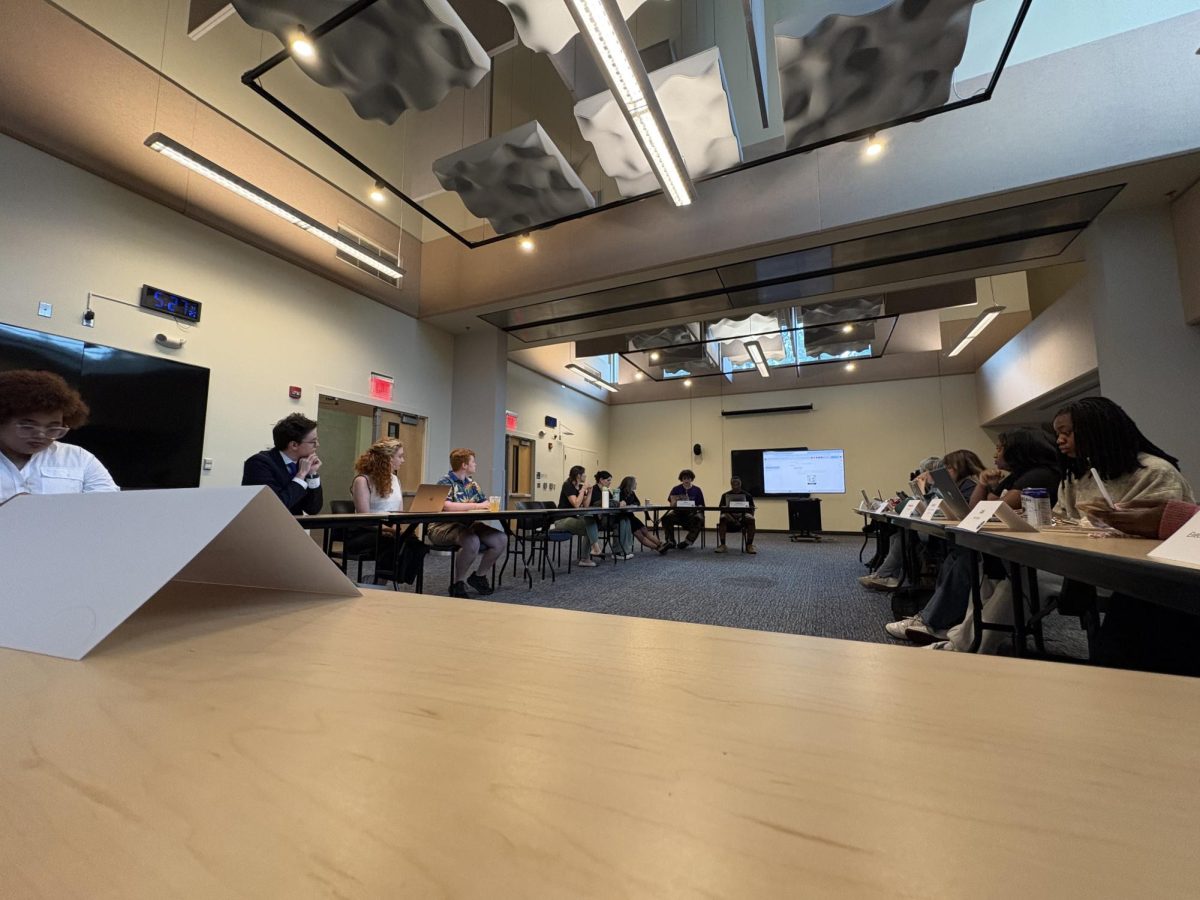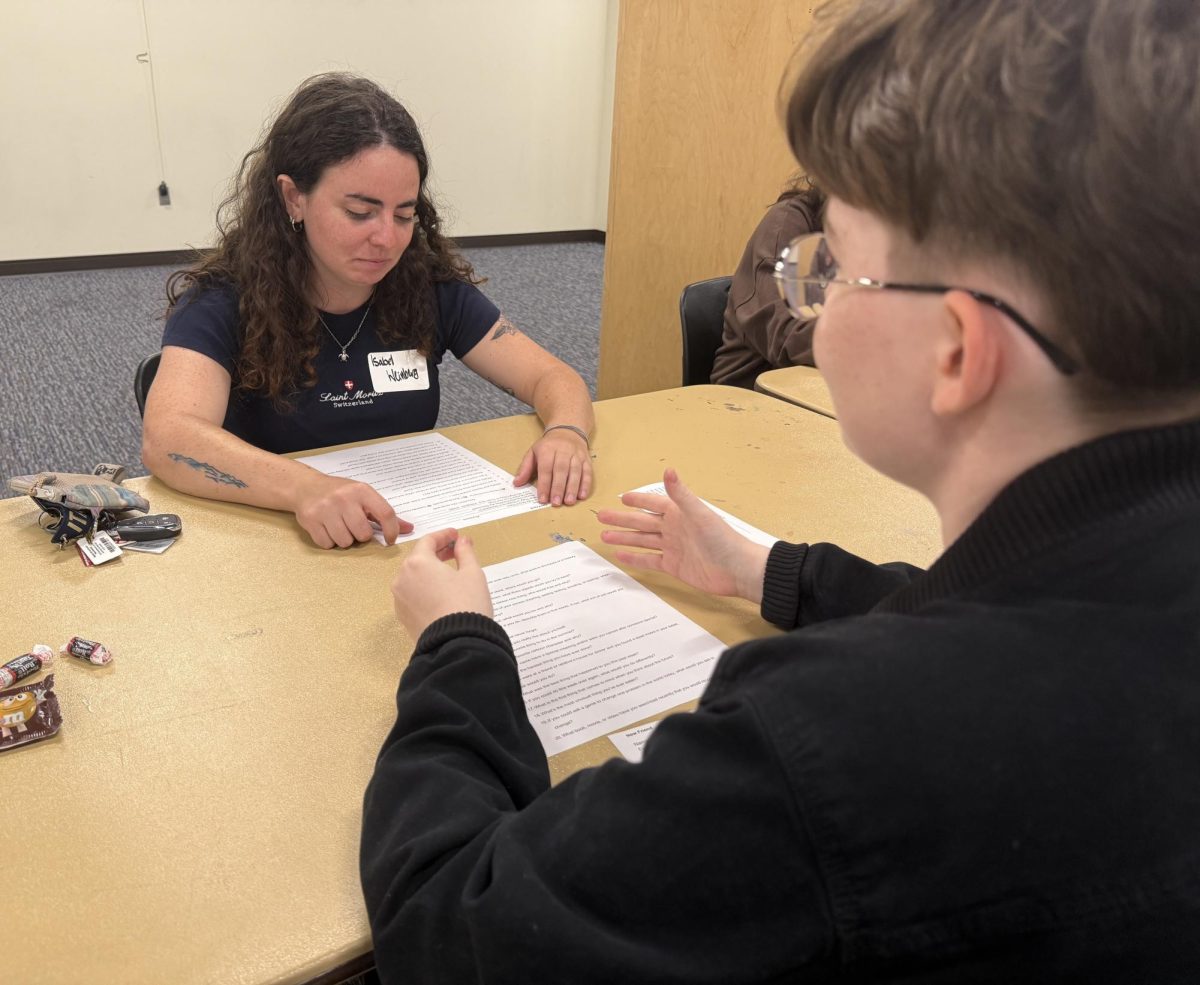By Raymond Brewer-Posey
Opinion Staff Writer
[email protected]
It was Dec. 16, 1989 and the Romanian revolution had only just begun.
“Blood was on the pavement and people were in the streets crying.”
Ioan Muntean, assistant adjunct professor in UNC Asheville’s humanities department, was 18 when the communist regime fell.
“It started by wanting the dictator killed,” Muntean said. “People were in the streets yelling, ‘Long live Europe,’ ‘Down with Nicolae.’ Everybody hated the Soviet Union; they were hating the system and the system was collapsing.”
Nine days later, on Christmas Day, th“It’s important for colleges to welcome international students for two reasons. From a philosophical perspective increasing diversity on campus broadens students understanding of the world, and economically foreign students bring in money through a variety of ways,” said Robert Straub, director of international student services at UNCA.e Romanian dictator and his wife were publicly executed by firing squad.
A historical year, 1989 saw the fall of the Berlin Wall, collapse of the Soviet Union and the end of communism as a global force.
Still, problems both political and social arose in the aftermath of the revolution.
“They tried to invent a new party and they lost the election. That’s when lots of collisions happened, again they were very bloody,” Muntean said. “I was in Bucharest shopping around for colleges. I went hours later and people were beaten on the streets, beaten by the (protestors).”
In the face of perpetual violence in a post-revolution country, Muntean started his academic career.
Earning an M.A. in theoretical philosophy and a Ph.D. in philosophy specializing in metaphysics at the University of Bucharest, he earned an additional Ph.D. at the University of California San Diego specializing in the philosophy of science.
As a professor in higher education, Muntean taught at colleges throughout the world, ending up at his current position at UNCA.
“The U.S. is still the best country in the world for higher education,” Muntean said.
Despite the recent political controversy surrounding immigrants, Muntean said he would still come to the United States for college.
It is not always that simple.
For Muntean, becoming a U.S. citizen took almost a decade.
“I think the people from other countries who were some of the best and brightest will no longer be coming to the U.S. I don’t think there is any question about that,” said Mark Gibney, Ph.D., professor of political science at UNCA.
Becoming a U.S. citizen is an arduous process for some and may not happen at all, effectively creating a brain drain, or the lack of intellectuals coming into the country. This ability to attract intellectually gifted people to colleges in the U.S. is a critical aspect in fostering an impactful higher education system, according to Gibney.
“It’s important for colleges to welcome international students for two reasons. From a philosophical perspective increasing diversity on campus broadens students understanding of the world, and economically foreign students bring in money through a variety of ways,” said Robert Straub, director of international student services at UNCA.
Muntean said he came to the U.S. for more than his career.
“It was also this feeling of corruption, political lack of freedom and lack of opportunities. (Which is) usually why people leave poor places,” Muntean said.
What if the next great mind of our time came from a banned country?
“If you have foreign nationals that are no longer coming here for education or work, it’s going to have devastating consequences for the economy,” Gibney said.
Fifteen years ago, nearly every billion-dollar technology start-up was based in the U.S. Today, the number has been cut nearly in half. Of the 191 billion-dollar tech start-ups, 86 are based in countries like China and India, according to Crunchbase.
In the wake of President Trump’s travel ban, major American tech companies like Facebook, Google and Apple condemned the executive order. According to a draft published by Recode, the statement highlights the importance of immigration.
“We are a nation made stronger by immigrants. As entrepreneurs and business leaders, our ability to grow our companies and create jobs depends on the contributions of immigrants from all backgrounds,” the three companies said in a joint statement.
While the countries specified in Trump’s travel ban do not directly extend to all nations, according to Gibney the precedent has been set and the message is clear.
Categories:
UNCA professor came to America for education
October 11, 2017
0
More to Discover























